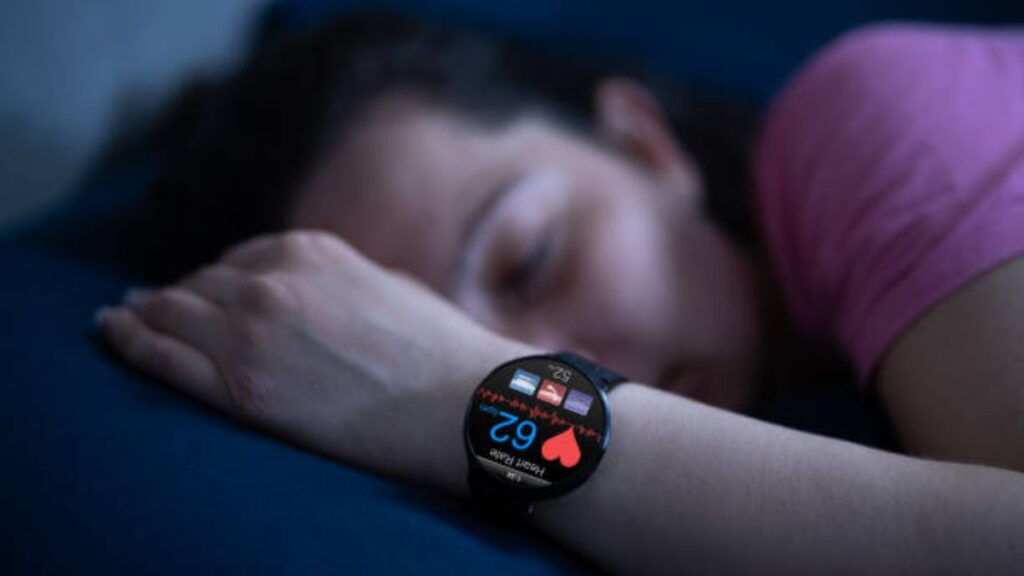Introduction:
Beyond the Gym: How Sleep Impacts Muscle Repair and Overall Fitness Levels

In our pursuit of fitness goals, intense workout routines, nutrition plans, and recovery strategies within the gym often take center stage. But one crucial factor that profoundly impacts muscle repair, growth, and overall fitness is often overlooked: the quality and quantity of sleep we obtain. This article investigates the scientific connections between sleep and muscle repair, emphasizing its broader implications for achieving fitness aspirations.
The Profound Significance of Quality Slumber
Quality sleep is more than a period for the body to rest. It’s a critical time when vital physiological processes, such as muscle repair and growth, take place. During deep sleep, the body secretes growth hormone, which is crucial for muscle tissue regeneration and repair. Adequate sleep fosters the body’s recovery from physical exercise stresses, aiding in the restoration of energy reserves and mending of damaged muscle fibers.
How Sleep Impacts Muscle Repair and Overall Fitness Levels
Sleep serves as a vital component in the repair and development of muscles. When engaging in strenuous physical activities, such as weightlifting or high-intensity interval training, microscopic tears occur within muscle fibers. During slumber, the body embarks on a restorative journey by synthesizing new proteins and mending damaged muscle tissue. This process, referred to as muscle hypertrophy, is essential for the gradual enhancement of strength and endurance over time.
Understanding Hormonal Equilibrium: A Balanced Approach to Optimal Health
Sleep plays a crucial role in maintaining hormonal balance, which is essential for muscle repair and overall fitness. Insufficient sleep disrupts hormonal regulation, leading to imbalances like elevated cortisol (the stress hormone), which promotes muscle breakdown and hinders recovery. Additionally, inadequate sleep affects insulin sensitivity, impairing nutrient absorption by muscles. Conversely,adequate sleep promotes optimal hormonal balance, supporting muscle repair, growth, and recovery.
Endurance and Performance Unraveled
Beyond facilitating muscle repair, sleep plays a crucial role in optimizing exercise performance and endurance. Scientific studies have revealed that sleep deprivation negatively impacts physical capabilities, reaction time, and cognitive functioning, resulting in reduced workout intensity and duration. In contrast, prioritizing quality sleep has been associated with enhanced athletic performance, including increased strength, power, and endurance. By ensuring sufficient rest, athletes can maximize the effectiveness of their training sessions and achieve superior fitness outcomes.
Enhance Your Sleep Quality: Practical Tips
To achieve optimal fitness and muscle repair, sleep hygiene and healthy sleep habits are crucial. Here are some strategies to enhance sleep quality:
- Maintain a Consistent Sleep Schedule: Establishing a regular sleep pattern by going to bed and waking up at the same time each day helps regulate the body’s natural sleep-wake cycle, promoting better sleep.
- Create a Relaxing Bedtime Routine: Engaging in calming activities like reading, meditation, or gentle stretching before bed helps signal the body to wind down and prepare for sleep, creating a conducive environment for restful sleep.
- Optimize Your Sleep Environment: Cultivating a comfortable sleep environment by ensuring darkness, quiet, and a cool temperature, as well as investing in a supportive mattress and pillows, contributes to better sleep quality.
- Limit Screen Time Before Bed: Reducing exposure to electronic devices, particularly smartphones and computers, in the hours leading up to bedtime minimizes the impact of blue light, which can disrupt melatonin production and interfere with sleep.
- Moderate Caffeine and Alcohol Intake: Limiting the consumption of caffeine and alcohol, especially close to bedtime, helps prevent disruptions to sleep patterns and quality, as these substances can interfere with sleep cycles.
Which is more beneficial for muscle recovery: sleeping longer or waking up earlier?
- Both duration and quality of sleep are crucial for muscle recovery.
- Waking up earlier may provide additional time for morning workouts, but it shouldn’t compromise sufficient sleep.
- Prioritize getting a full night of quality sleep, aiming for 7-9 hours, rather than sacrificing it to wake up earlier.
- Adequate sleep allows essential processes for muscle repair and growth, including the release of growth hormone and the repair of damaged muscle tissue.
- Quality sleep supports overall physical and mental well-being, crucial for optimal performance in workouts and recovery.
- Establish a consistent sleep schedule that allows enough restorative sleep each night, regardless of whether you wake up earlier or sleep longer.
Can any dietary supplements enhance both sleep quality and muscle recovery?
Yes, several dietary supplements have been studied for their potential to improve sleep quality and support muscle recovery. Here are some examples:

1. Melatonin: Melatonin, a hormone made naturally by the body, plays a crucial role in regulating the sleep-wake cycle. Supplementing with melatonin can improve sleep quality, shorten the time it takes to fall asleep, and help alleviate symptoms associated with jet lag or shift work sleep disorder.
2. Magnesium:Magnesium plays a crucial role in over 300 biochemical reactions, primarily associated with muscle function and relaxation. Studies indicate that supplementing with magnesium could enhance sleep quality. It does this by fostering relaxation and reducing stress and anxiety.
3. Zinc: Zinc, a fundamental mineral, performs essential functions in immune response, protein synthesis, and tissue repair. Research indicates that zinc supplementation could potentially assist in muscle recovery and repair, especially following intense physical exertion.
4.Branched-Chain Amino Acids (BCAAs): Three crucial amino acids known as branched-chain amino acids (BCAAs) are leucine, isoleucine, and valine, which play a significant role in building and repairing muscle proteins. Consuming BCAAs before or after doing exercise may help lessen muscle soreness and enhance recovery.
5. L-theanine: L-theanine is an amino acid found in tea leaves that has been shown to promote relaxation and reduce stress and anxiety. Some research suggests that L-theanine supplementation may improve sleep quality and reduce symptoms of insomnia.
6.Tart Cherry Juice: Tart cherry juice is rich in antioxidants and naturally occurring melatonin. Drinking tart cherry juice before bedtime has been associated with improvements in sleep duration and quality, as well as reductions in muscle soreness and inflammation.
7. GABA (Gamma-Aminobutyric Acid): GABA is a neurotransmitter that plays a role in promoting relaxation and reducing anxiety. Supplementing with GABA may help improve sleep quality and reduce the time it takes to fall asleep.
Individual responses to dietary supplements vary; more research is needed. Consult with your healthcare professional before starting any new supplements.
Conclusion
Sleep is as important as diet and exercise for fitness and muscle growth. Quality sleep optimizes recovery, enhances muscle growth, and boosts performance.
FAQs
1. How many hours of sleep do I need for optimal muscle recovery?
Ideally, adults should aim for 7-9 hours of quality sleep per night to support optimal muscle repair and recovery. However, individual sleep needs may vary based on factors such as age, activity level, and overall health.
2. Can poor sleep affect muscle growth and strength gains?
Yes, inadequate sleep can negatively impact muscle growth and strength gains. Sleep deprivation disrupts the body’s ability to repair and build muscle tissue, leading to diminished athletic performance and slower progress in strength training.
References
1. Taheri, S., Lin, L., Austin, D., Young, T., & Mignot, E. (2004). Short Sleep Duration Is Associated with Reduced Leptin, Elevated Ghrelin, and Increased Body Mass Index. PLOS Medicine, 1(3), e62. DOI: 10.1371/journal.pmed.0010062
2. Dattilo, M., Antunes, H. K. M., Medeiros, A., Mônico-Neto, M., Souza, H. S., Tufik, S., & de Mello, M. T. (2011). Sleep and Muscle Recovery: Endocrinological and Molecular Basis for a New and Promising Hypothesis. Medical Hypotheses, 77(2), 220–222. DOI: 10.1016/j.mehy.2011.04.017
3. Fullagar, H. H., Skorski, S., Duffield, R., Hammes, D., Coutts, A. J., & Meyer, T. (2015). Sleep and Athletic Performance: The Effects of Sleep Loss on Exercise Performance, and Physiological and Cognitive Responses to Exercise. Sports Medicine, 45(2), 161–186. DOI: 10.1007/s40279-014-0260-0








